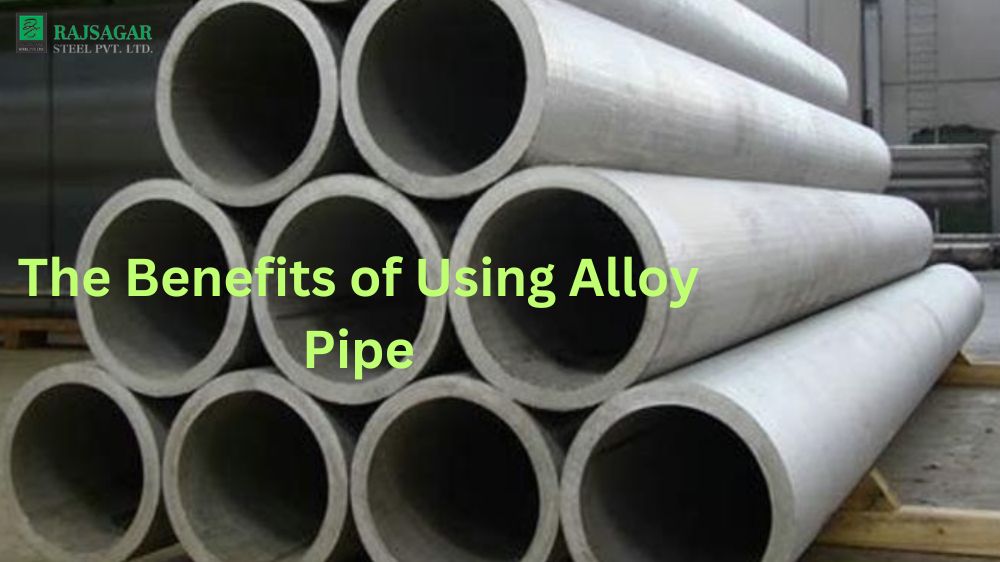When it comes to industrial applications, using the right kind of pipes is crucial to ensure that everything runs smoothly. One type of pipe that has proved to be highly beneficial in various industries is alloy steel pipe. This type of pipe is made by mixing two or more metals to create a strong, durable, and corrosion-resistant material. In this blog post, we will explore the benefits of using alloy pipes and how they can help enhance your operations’ efficiency and performance.
What is Alloy Steel Pipe?
Alloy Steel Pipe is a type of piping made from special alloys and composites. These pipes are typically used in high-pressure applications such as transporting oil, gas, and water for industrial purposes or in speciality applications such as aerospace and nuclear engineering. Alloy pipe is highly durable because it has superior corrosion resistance compared to carbon steel pipes, thus allowing it to last longer even when exposed to harsh conditions. Additionally, alloy pipes can also be used for low-temperature applications due to their good mechanical properties at elevated temperatures. It’s also generally more expensive than carbon steel due to the additional materials used to construct alloy pipes. Overall, alloy piping provides an extremely useful material that offers various benefits for industrial use.
Benefits of Using Alloy Steel Pipe
High Strength and Durability
Alloy Steel pipe is made from a combination of metals, making it much stronger and more durable than standard pipes. This increased strength and durability make alloy pipes ideal for use in industrial settings that require high-performance materials that can withstand harsh conditions like heat, pressure and corrosion. For instance, alloy pipes are used extensively in the oil and gas industry, where they can withstand high-pressure conditions and the corrosive nature of oil and gas.
Corrosion-Resistant Properties
Another significant benefit of alloy pipe is that it is highly corrosion-resistant. Corrosion is a major problem for regular pipes, and it can significantly affect their performance, leading to reduced efficiency, leaks, and ultimately costly repairs. However, by using alloy pipes, you can avoid all these problems since they are highly resistant to corrosion, making them ideal for use in highly corrosive environments.
Enhanced Temperature Resistance
Alloy Steel pipe can also withstand temperatures higher than traditional steel pipe, making it ideal for high-temperature applications. The increased temperature resistance of alloy pipes is due to the addition of elements such as chromium and nickel, which have a higher melting point than iron.
Wide Range of Applications
Alloy Steel pipes come in many forms, making them suitable for various applications. For instance, nickel alloy pipes are suitable for use in chemical processing plants, power plants, and oil refineries. On the other hand, stainless steel alloy pipes are great for applications that require high strength and corrosion resistance, such as in the aerospace, automotive, and marine industries.
Low Maintenance
Another great advantage of using alloy pipes is that they require minimal maintenance. Alloy pipes have a longer lifespan than standard pipes and are less prone to damage due to their high strength and durability. This means they can operate efficiently for more extended periods without needing replacement or extensive repairs. This makes them ideal for use in industries such as construction, where safety is paramount, and equipment needs to be reliable and durable.
Increased Ductility
Alloy Steel pipe is more ductile than traditional steel pipe, meaning that it can be bent or formed into shapes without breaking. The increased ductility of alloy pipe is due to the addition of elements such as chromium and nickel, which increase the amount of time the material can spend in a plastic state before solidifying.
Cost-effective
Although alloy steel pipes are more expensive than regular pipes, they are highly cost-effective in the long run. Their high strength, durability, and corrosion resistance mean they require minimal maintenance, reducing the repair and replacement cost. Additionally, their long lifespan and operational efficiency translate into reduced production costs and increased efficiency, which can significantly impact your bottom line.
Conclusion:
In conclusion, alloy steel pipes have numerous benefits, making them an excellent choice for various industrial applications. Their high strength, durability, corrosion resistance, a wide range of applications, low maintenance, and cost-effectiveness make them an ideal choice for many industries. Therefore, if you’re considering upgrading your industrial systems, consider using alloy steel pipes for long-lasting and efficient operation.

